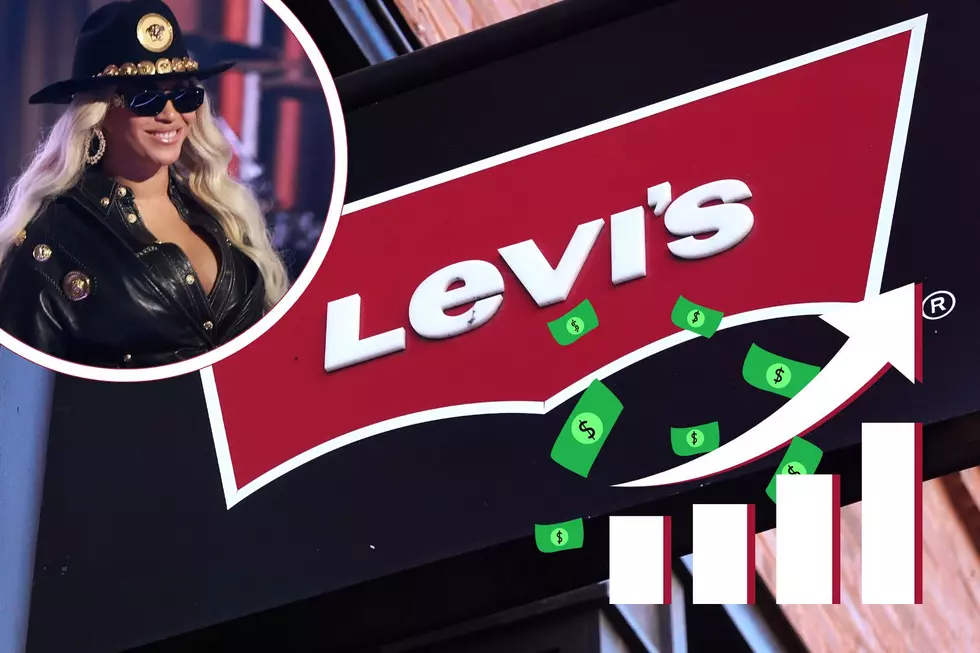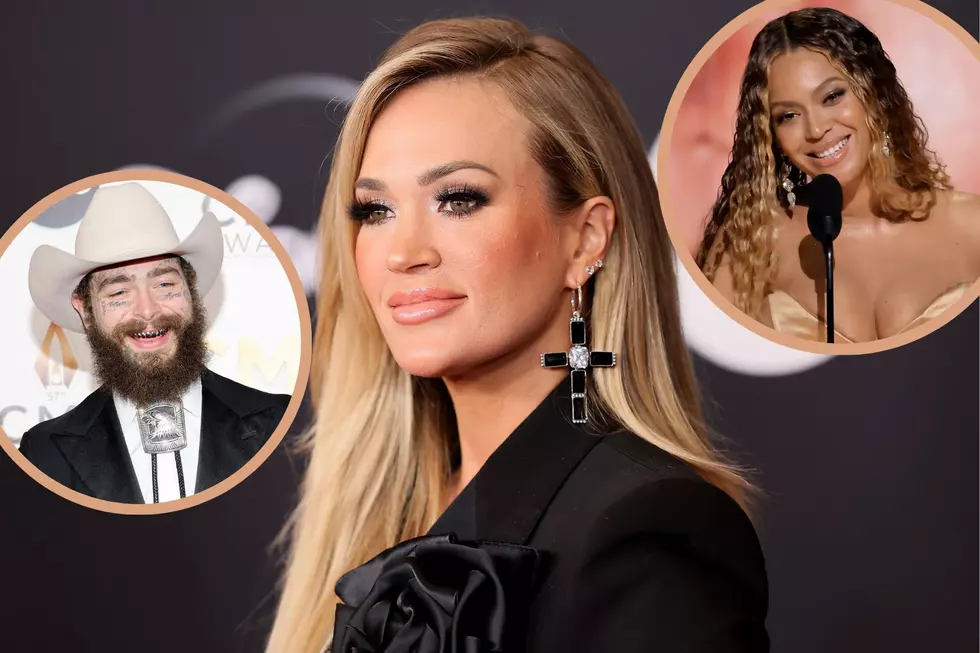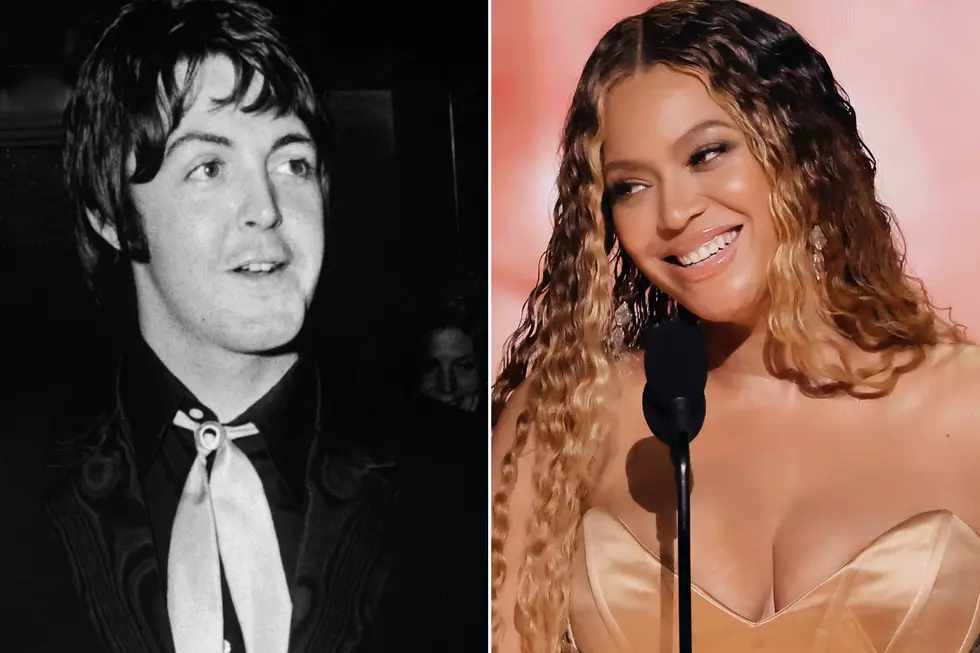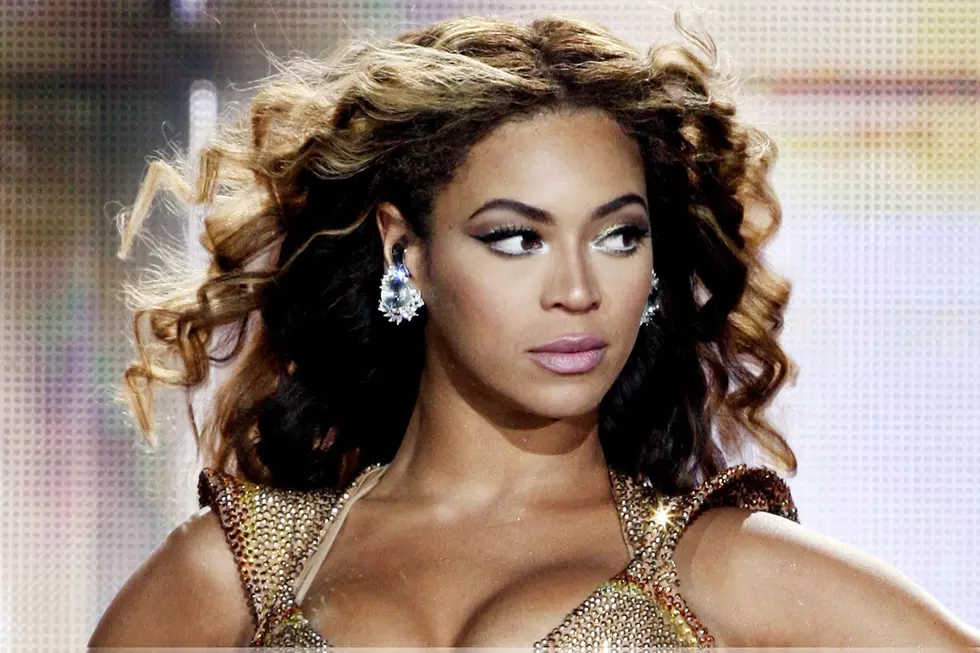
Why Is Beyonce’s ‘Lemonade’ Nominated for an Album Of The Year Grammy?
Beyoncé channeled her inner Sasha Fierce in 2008, grew outside her pop confines with 4 and tapped deeper still into her artistic side on her 2013 self-titled album. But when she returned with Lemonade in 2016, she not only kept her longstanding message of empowerment going stronger than ever, but supplied a political rallying cry — and a personal narrative we didn't exactly see coming.
From her controversy-sparking "Formation" to the "Becky with the good hair" heard 'round the world on "Sorry," Beyonce proved yet again why she's truly the Queen B, reeling in nine Grammy Award nominations this year, including Best Rock Performance for "Don't Hurt Yourself" (a first for the singer!), and, of course, Album of the Year.
As we did with Adele's 25 we've analyzed all aspects of this LP to explain why Bey was nominated for this award yet again.
ABOUT THE ALBUM: As we've seen with the release of her surprise self-titled visual album in 2013, Beyoncé doesn't necessarily follow the rules. So when she revealed that a new album was on the way, she did so by first announcing The Formation World Tour during Super Bowl 50, before anyone knew there would be more music beyond "Formation." In late February, Twitter erupted with news of a Bey movie premiere in the spring. Lemonade, the album visual, premiered on HBO on April 23, and the tracks were made available via TIDAL (naturally!) immediately after the telecast before becoming available on iTunes on April 25. Bey worked with an eclectic set of heavyweights on Lemonade, including Diplo, Ezra Koenig of Vampire Weekend, Jack White, Just Blaze, Mike Will Made It and James Blake.
SINGLES: If you watched Lemonade, then you heard every song, but "Formation," "Sorry," "Hold Up," "Freedom" and "All Night" were the five official singles off Lemonade. "Formation," which made its live debut at the Super Bowl 50 Halftime Show, peaked at the No. 10 spot on the Billboard 100. "Sorry" came in at No. 11 on the Billboard Hot 100, while "Hold Up" landed in the 13th spot on the chart. Meanwhile, her collaboration with Kendrick Lamar, "Freedom" popped up on radio on September 9, and "All Night" followed in December.
Beyoncé also released special version of "Daddy's Lessons," featuring The Dixie Chicks on November 2. It was made free via Bey's Soundcloud as a standalone single.
CRITICAL PRAISE: Lemonade was named one of the best albums of 2016 across the media spectrum. Entertainment Weekly's Ray Rahman called it "her boldest, most ambitious, best album to date."Jillian Mapes of Pitchfork wrote, "Lemonade is a stunning album, one that sees her exploring sounds she never has before. It also voices a rarely seen concept, that of the album-length ode to infidelity. Even stranger, it doesn’t double as an album-length ode to breaking up." Jonathan Bernstein wrote that Lemonade was Bey's "strongest album" in The Telegraph. Rob Sheffield of Rolling Stone gave it five stars and wrote, "Lemonade is her most emotionally extreme music, but also her most sonically adventurous."
CULTURAL IMPACT: If there 's one Beyoncé album that caused the most controversy, it was definitely Lemonade. Let's start with her lead single, "Formation": not only did she receive flack for the post-Katrina and New Orleans footage in the video, but her Black Panther-inspired performance at Super Bowl 50 sparked criticism for being anti-police and even brought a "protest" in New York City against the superstar. At the time, Saturday Night Live poked fun at people's realization that Beyoncé is a proud black woman in a skit that received more than 9.8 million views.
Then there's the question: "Who's Becky with the good hair," anyway? A lyric from her song "Sorry" became the next big obsession. Not only did that song question Jay Z's commitment, but also caused both fans and the media to point fingers at a whole slew of female celebrities from Rita Ora to Rachel Roy, who was heavily accused of being Jay's mistress at one point.
Bey's unapologetic honesty received praise from stars including Lin-Manuel Miranda, Anne Hathaway and late night hosts like James Corden, who did a hilarious parody of the movie. Lemonade also made an impact in academia as one professor at the University of Texas at San Antonio developed a class to analyze the social, cultural and historical aspects of the album.
Going along with the remix of "Daddy's Lessons" with The Dixie Chicks, Bey and the country group performed the song at the Country Music Awards Awards last November. However, the Country Music Association Awards deleted the performance from its website, allegedly removing it following racist comments on the post. Keeping her head up, Beyoncé showed her patriotic spirit days before Election Day (November 8) by performing "Formation" at a major fundraising concert for Democratic Presidential Candidate Hillary Clinton. And as recently as this month, some of those who walked in Washington, D.C. for the Women's March on Saturday (January 21) wore their Bey and Lemonade gear to show off their feminist spirit.
THE ARTIST SAYS: While fans will say they know Beyoncé, how much do they really know her? She's known to rarely give interviews and keep things mysterious. However, she did open up a little bit about why she released Lemonade to Access Hollywood during the premiere of the visual. "It was time for me to share my story because I've been through so much, and I have so much to celebrate and so much to share. And I've always directed these little movies, and now I've directed a film for HBO. I'm so proud and so nervous."
She also spoke with Elle for its May 2016 issue about what "Formation" means to her. "I mean, I'm an artist and I think the most powerful art is usually misunderstood," she told the magazine. "But anyone who perceives my message as anti-police is completely mistaken. I have so much admiration and respect for officers and the families of officers who sacrifice themselves to keep us safe. But let's be clear: I am against police brutality and injustice. Those are two separate things. If celebrating my roots and culture during Black History Month made anyone uncomfortable, those feelings were there long before a video and long before me. I'm proud of what we created and I'm proud to be a part of a conversation that is pushing things forward in a positive way."
More From PopCrush








![Beyonce’s ‘Smoke Hour’ Collaboration With Willie Nelson Is Not at All What We Expected [Listen]](http://townsquare.media/site/204/files/2024/03/attachment-beyonce-willie-nelson.jpg?w=980&q=75)
